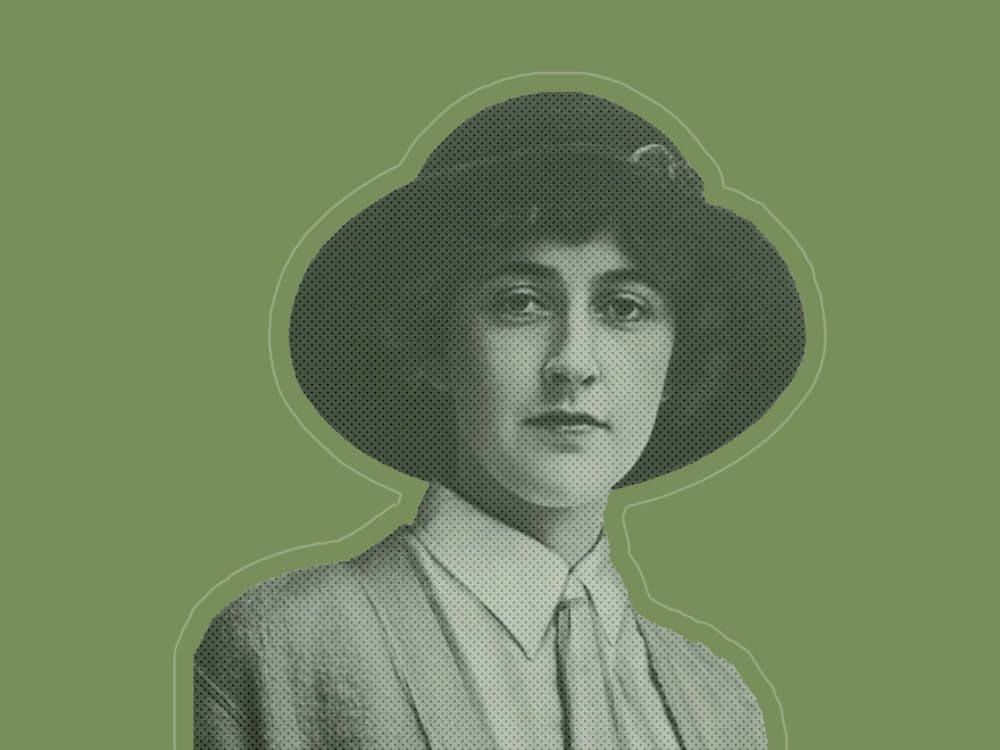My house is filled with books. Bookshelves on bookshelves, stacks on stacks, basically every corner of the house stuffed to the brim with all the stories I grew up with. Yet my favorites were always the mysteries, enthralled by the unpredictability and terrifying plots with classic detective characters. From an early age, I was drawn to the shelves filled with my mom’s old “Nancy Drew” collection, our countless copies of “Sherlock Holmes,” and my personal favorite, Agatha Christie.
Agatha Christie was a hero in my eyes. She produced 2 billion copies of her novels, and her estate claims that her works come third in the rankings of the world's most widely-published books, following William Shakespeare and the Bible. And as a woman in a time when the female job market was so limited, she was the primary provider in her own household.
When I was young, I loved her 1939 novel “And Then There Were None,” a shocking story of a series of murders on a mysterious isolated island. In the novel, eight guests are invited to an island, each for a unique reason. Their hosts, Mr. Ulick Norman Owen and Mrs. Una Nancy Owen, have yet to make an appearance but have left instructions for their guests to guide their trip. Within the first night, two of the guests have died, and the remainder suspect their hosts are planning a systematic killing of each of them.
But what I skipped over as a young child was a framed picture in the room of each guest, a minstrel song with a problematic and racist title, which was once the title of the novel around the world and remains the title in France, Germany and Russia to this day. The rhyme itself played a critical role in the novel, indicating how each guest could die if they do not solve the mystery, but the title of this minstrel song was only briefly mentioned.
As I reread Agatha Christie’s novels since growing up, I noticed a disturbing trend throughout her books, beyond this personal favorite of mine: a sense of indirect racism blended with direct discrimination that targets minority groups and religious organizations, particularly black people, Asians, Jewish people, Catholics and Native Americans.
What does this mean for her works? Is there a way to continue to enjoy her novels when they often rely on such racist tropes? Cancel culture has promoted the ideology that rather than interacting with these works, it is better to eliminate them from society altogether, a social boycott of sorts. It is the people’s way of policing content, determining what a culture views as valuable and what it deems unforgivable.
Yet with writers who have the pervading influence that Christie does, a full-stop elimination of her content in the literary world is impossible. Today, the very arc of mystery novels and the basis of detective characters are often inspired by her nearly 70 novels.
The difference between Christie and a typical social media influencer today is the effect of their opinions on larger social structures and ideologies. When Kim Kardashian calls her shapewear “kimono” or when Jeffree Star makes one of his many racist comments, people have the power to decide how to engage with them. Agatha Christie’s influence as a historical figure, in many ways, has been set in stone. To cancel Christie would be to cancel nearly a hundred years of mystery novels — a near-complete destruction of the genre itself.
What I have come to realize through rereading these novels is the most critical thing to do: change how I choose to interact with her work. Critique is proof of societal growth. When I read her work, I realize it can never be fully separated from the racism and bigotry it relies on, nor should it. Instead, the response to her work and how literature has changed is proof of progress, proof that our world, our society, our culture can write works like the awe-inspiring novels Christie did but without the dependence on discriminatory language. Canceling Christie will not remove her historical impact nor critique the flaws of her writing; instead, critiquing her work as it stands will remind us why we cannot go back.
Get The Chronicle straight to your inbox
Signup for our weekly newsletter. Cancel at any time.

